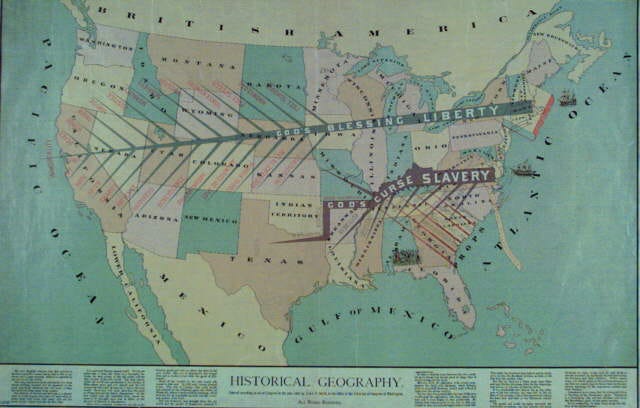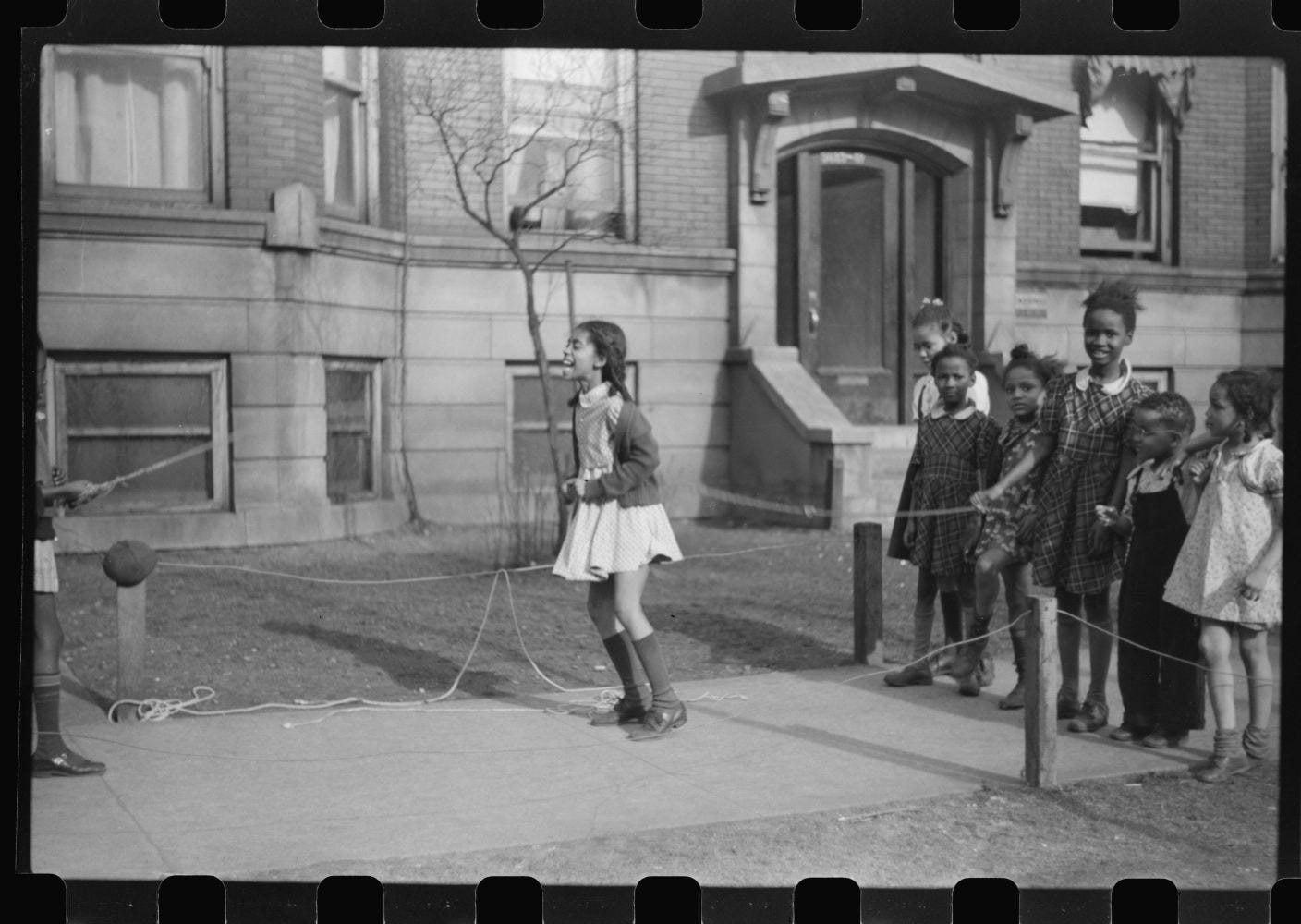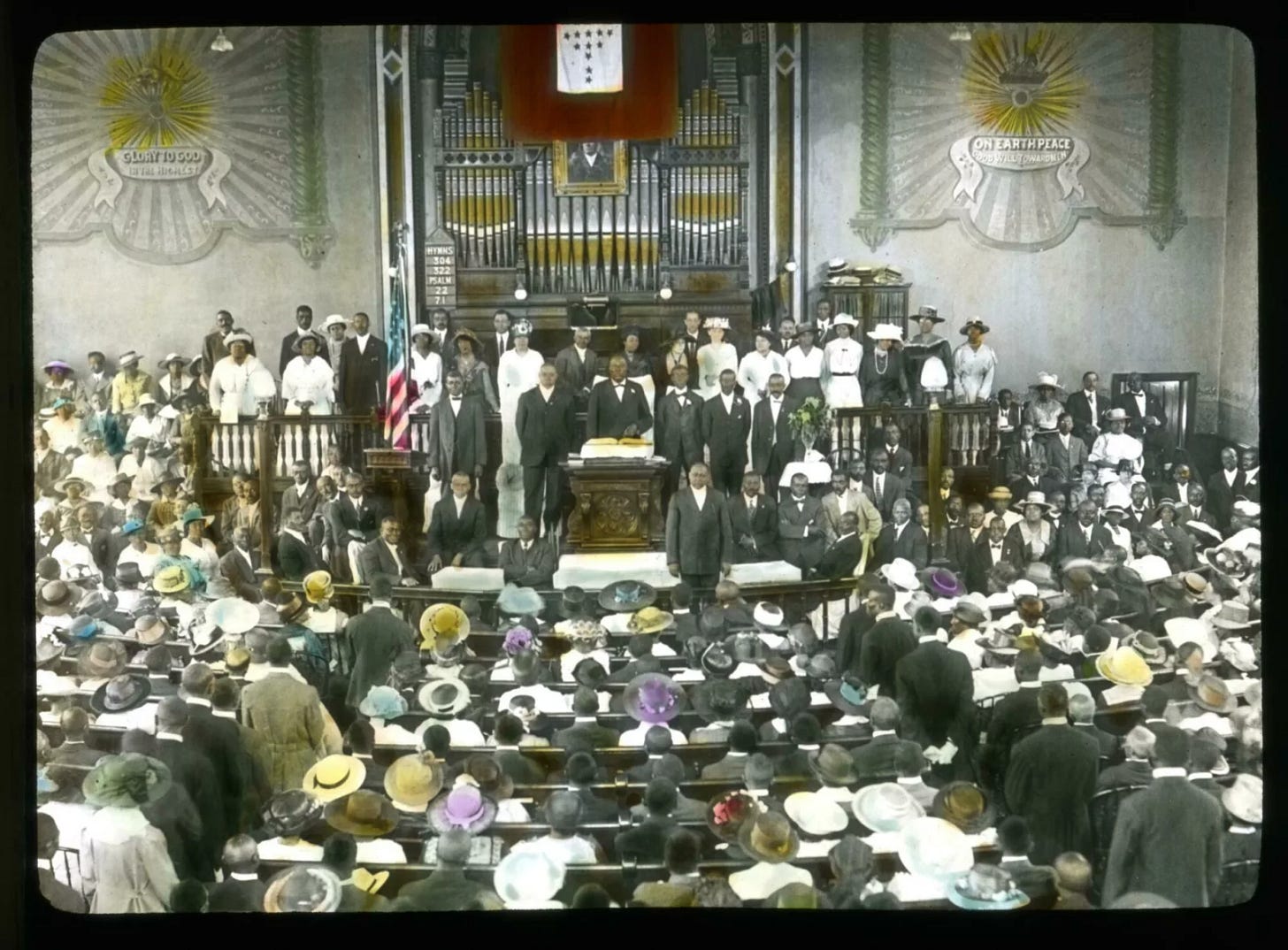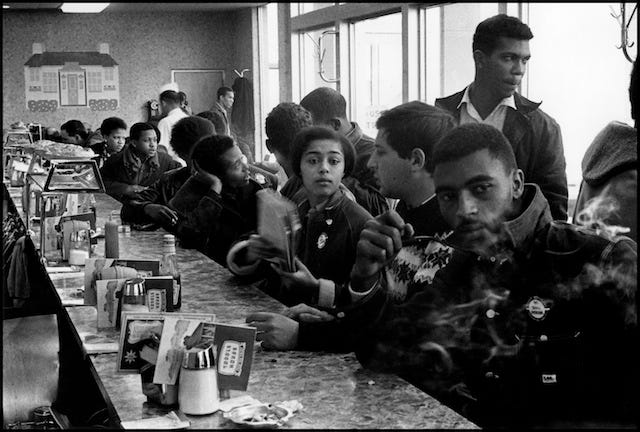We Move: The Digital Great Migration
Dr. Brittney Cooper sits at the Kitchen Table with a reflection on Black movement across online spaces
I am really grateful to have smart friends. While chatting with Dr. Brittney Cooper of
about this current digital media, radical media, communications landscape, she said, “Well, it’s a Digital Great Migration.” And I said, “Sisssss, say more!!!!” So she did. Read the more below…We Move: The Digital Great Migration - by Dr. Brittney Cooper
“Nightriders ‘disastered dem what meddled wid de white folks.’” – Nell Painter, Exodusters
One of the hallmarks of the late 19th and 20th centuries in Black cultural life, was a series a geographical migrations, catalyzed by repressive racial violence during and after Reconstruction.
For example, the Exodusters who moved West to places like Kansas and Oklahoma in the 1870s. The epigraphic line above has always been evocative for me since a friend pointed it out about a decade ago. It references the Exodusters Movement and the violence that lead to it. The way this Black person used “disaster” as a verb feels especially important in this moment. When my friend quoted the line to me, she said the person said, “they came and disastered the Negroes.” I have quoted it accurately above, but we are living through another historical moment where a group of rich propertied amoral white men seek to “disaster the Negroes.”

In the early to mid-20th century, Black people moved first from rural towns throughout the South, to Southern urban areas like New Orleans, Birmingham, and Atlanta. But then they kept moving North. People from Louisiana, Arkansas, and Mississippi caught the rail lines to Chicago and various outposts in the Midwest including Detroit, Milwaukee, and Ohio. People closer to the East Coast went North to Philadelphia, New Jersey, and New York. Folks in certain parts of Louisiana and Texas headed to California. Black people were on the move, fleeing violence and searching for economic opportunity.

We have not yet told the story of the 21st century as the story of Black Migration, although Black outmigration to the North stopped only around 1970. And Black people are now moving back to Southern cities, Atlanta, Durham, Charlotte, Houston, and Dallas in large numbers. In 2005, Hurricane Katrina lead to an acute mass Black migration, caused by natural disaster, sending Black people to outposts all over the country, particularly to other urban areas in the South.
I offer this context as a way to think about how Black people respond to increased threats of racial violence and decreased access to safety. We move.
When Elon Musk purchased Twitter in 2022, for the purposes of handing it over to right wing trolls, and breaking the back of radical social movements that had been fomented there, folks stopped using the platform, locked their accounts, or deleted them all together. At various points, I did all three, choosing finally to delete my account this year on January 20, 2025.
Over the last two years, we have watched people move to Mastodon, Clubhouse, and Bluesky.
When the folks at Meta announced that they were doing away with fact-checking earlier this month, Black people began discussing where they could go. Spill or Fanbase, both companies started by Black male founders? Bluesky, a company run by a woman of color?
When Tik-Tok was taken offline in the United States as a one-day political stunt, some Black people moved over to the Chinese-owned Red Note.
The writers moved to Substack. The digital community girls moved have been moving to Patreon. YouTube keeps adapting its offering, so even more people have launched channels there. And there have been massive calls for people to start e-newsletters, because as we keep being reminded, “you can’t trust these platforms.”

When places become too steeped in racial violence or too economically untenable, Black people do what we have always done. We move. In search of dignity, safer waters, and better opportunity. In the process we try to build community.
The digital space is in massive disarray right now as the broligarch class seeks to “disaster us all,” and we all search for a way to get information, have community, and not be assaulted with racist and sexist slurs, and gratuitous violence.
Though it is unclear where we will all end up, we are actively in the process of creating new Black digital diasporas. We are also modeling and forming what Carole Boyce Davies famously called “migratory subjectivities,” in the digital space.
A Black Digital Great Migration is happening and even though it is too soon to fully make sense of all that it means, we should see it as part of a long political game and set of strategies we have always played to be okay.







